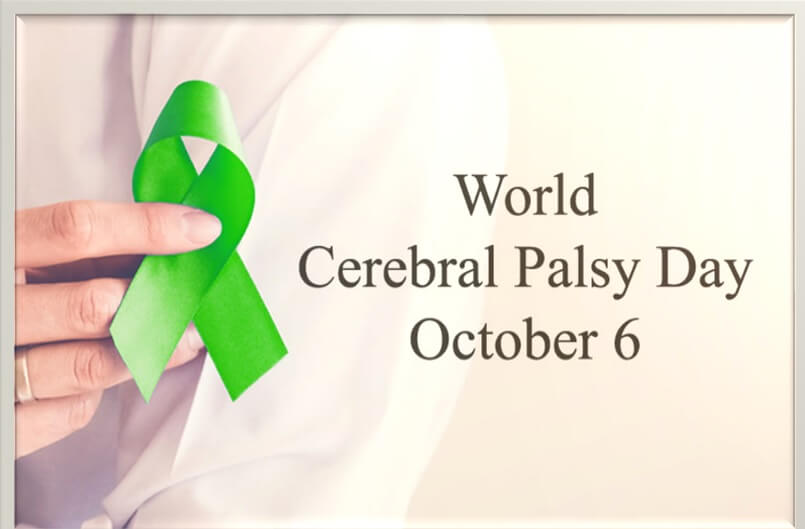Know how sleep disorder results from cerebral palsy on World Cerebral Palsy Day 2023
Fri 06 Oct 2023, 23:40:22

World Cerebral Palsy Day 2023 is an international observance held on October 6th every year to raise awareness and promote the rights of people living with cerebral palsy. This neurological disorder affects millions of people globally and can lead to difficulties with movement, coordination, and other physical challenges. On this day, various events and campaigns are held worldwide to educate the public about cerebral palsy, its impact on individuals and their families, and the need for equal opportunities and accessibility. It is a day to celebrate the achievements of people with cerebral palsy, honour their resilience, and advocate for a more inclusive and equitable world for all.
Let's discuss the sleep disorders that can significantly affect individuals with cerebral palsy, a neurological condition that affects muscle control and movement. Dr.Vinit Banga - Associate Director of Neurology and head - of Neurovascular Intervention Centre for Neurosciences, BLK Max Superspeciality Hospital has shared a few sleep disturbances that can be attributed to various factors related to cerebral palsy.
Firstly, the physical limitations and muscle spasticity associated with cerebral palsy can make it challenging for individuals to find a
comfortable sleeping position. This discomfort can lead to frequent awakenings during the night, disrupting the natural sleep cycle.
comfortable sleeping position. This discomfort can lead to frequent awakenings during the night, disrupting the natural sleep cycle.
Secondly, pain and discomfort from muscle stiffness or contractures can intensify during the night, further disrupting sleep. This can result in increased fatigue during the day and reduced overall sleep quality.
Additionally, some medications prescribed to manage cerebral palsy symptoms may have side effects that interfere with sleep patterns. For example, muscle relaxants or antispasticity drugs can cause drowsiness during the day and may lead to insomnia at night.
Furthermore, individuals with cerebral palsy may have coexisting conditions like gastroesophageal reflux disease (GERD) or respiratory issues, which can exacerbate sleep problems.
Addressing sleep disorders in individuals with cerebral palsy requires a multidisciplinary approach, involving healthcare providers, physical therapists, and sleep specialists. Treatment may include physical therapy to reduce muscle stiffness, medication adjustments, and strategies to improve sleep hygiene. By addressing these factors, it is possible to enhance sleep quality and overall well-being for those with cerebral palsy.
No Comments For This Post, Be first to write a Comment.
Most viewed from
Most viewed from Health
AIMIM News
Asaduddin Owaisi files nomination papers on Friday
Apr 20, 2024
Owaisi Begins Election Campaign in Hyderabad
Apr 13, 2024
Bring back Indian workers in Israel: Owaisi
Apr 13, 2024
Latest Urdu News
Most Viewed
May 26, 2020
Do you think Ruturaj Gaikwad would be a good captain for Chennai Super Kings?
Latest Videos View All
Like Us
Home
About Us
Advertise With Us
All Polls
Epaper Archives
Privacy Policy
Contact Us
Download Etemaad App
© 2024 Etemaad Daily News, All Rights Reserved.













.jpg)
.jpg)
.jpg)
.jpg)
.jpg)
.jpg)
.jpg)
.jpg)
.jpg)
.jpg)
.jpg)
.jpg)
















